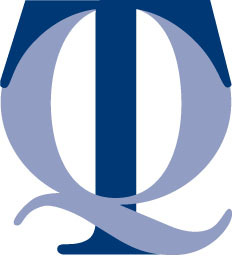July 2014
By Elisabeth Liptak, Director of Professional Development, IDA
 On June 17, the National Council on Teacher Quality (NCTQ) released the second edition of its annual review of teacher preparation programs in the United States, Teacher Prep Review 2014. While the report continues to highlight major challenges in the way teachers are prepared, it also points to positive signs of a movement to improve teacher preparation across the country. These include changes in laws and regulations, calls for increased accountability by the U.S. Department of Education, and a more rigorous system for accrediting universities implemented by CAEP (Council for the Accreditation of Educator Preparation), formerly NCATE.
On June 17, the National Council on Teacher Quality (NCTQ) released the second edition of its annual review of teacher preparation programs in the United States, Teacher Prep Review 2014. While the report continues to highlight major challenges in the way teachers are prepared, it also points to positive signs of a movement to improve teacher preparation across the country. These include changes in laws and regulations, calls for increased accountability by the U.S. Department of Education, and a more rigorous system for accrediting universities implemented by CAEP (Council for the Accreditation of Educator Preparation), formerly NCATE.
In the second edition of its comprehensive report, NCTQ looked at 836 institutions, an increase of 38 percent from the 2013 report, and 2,400 programs. All programs reviewed in 2013 were invited to submit new materials, but only 118 institutions chose to do so. In this new edition of the Teacher Prep Review, programs received a numerical ranking rather than last year’s four-star rating system. Also new to this year’s ranking is the inclusion of 85 alternative certification programs at the secondary level, more than half of which are located in Texas. These programs fared worse than their university-based counterparts, marked by low admission standards, lack of preparation to teach content areas adequately, and poor opportunities for student teaching.
While the report continues to highlight major challenges in the way teachers are prepared, it also points to positive signs of a movement to improve teacher preparation across the country.
The NCTQ review rates programs in the areas of Selection Criteria, Content Preparation, Professional Skills, and Outcomes. Schools must score well in more than one of these areas in order to receive a high score overall. In the category of Selection Criteria, last year’s report exposed the low standards for admission into our teacher preparation programs, especially when compared with programs in other parts of the world. As a result of last year’s report, nine schools have increased their admissions criteria, and Delaware and Rhode Island are tackling this issue at the state level.
The NCTQ Standards for reading appear in the Content Preparation category and break down into separate sections for Early Reading, Struggling Readers, and English Language Learners. Also included in the Content category are standards for Elementary Mathematics, and Elementary, Middle and High School Content that align with the Common Core State Standards. In order to score well in the reading standards, schools only need to show that they address the five components identified by the National Reading Panel in 2000 in two lectures and an assignment. Even with this low bar, just 17 percent of the 959 elementary and special education programs reviewed cover all five components adequately.
By contrast, programs reviewed by IDA for their alignment with our Knowledge and Practice Standards for Teachers of Reading cover the five component skills, and more, in significant depth. Because of the way the NCTQ review is structured, there tends to be little overlap with the IDA accreditation reviews and outcomes, although we share the same goal of producing highly qualified teachers. The NCTQ review focuses primarily on large public universities that lead to teacher licensure, while most of the programs IDA has reviewed to date are non-licensure graduate programs, some of which focus specifically on dyslexia therapy. Another major difference between the two reviews is that IDA’s is a voluntary and collaborative process.
For a more in-depth look at the NCTQ Teacher Prep Review 2014, with links to reports on specific standards and a breakdown by states, visit the NCTQ website.
Elisabeth “Liz” Liptak is in an expert in the reading and literacy fields. She served as the Executive Director of the Washington Literacy Council, a community-based direct service program in Washington DC that served struggling adult readers and younger children, prior to joining IDA in May of 2011. Liz has been a reading tutor since 1989.
Copyright © 2014 International Dyslexia Association (IDA). We encourage sharing of Examiner articles. If portions are cited, please make appropriate reference. Articles may not be reprinted for the purpose of resale. Permission to republish this article is available from info@interdys.org.

